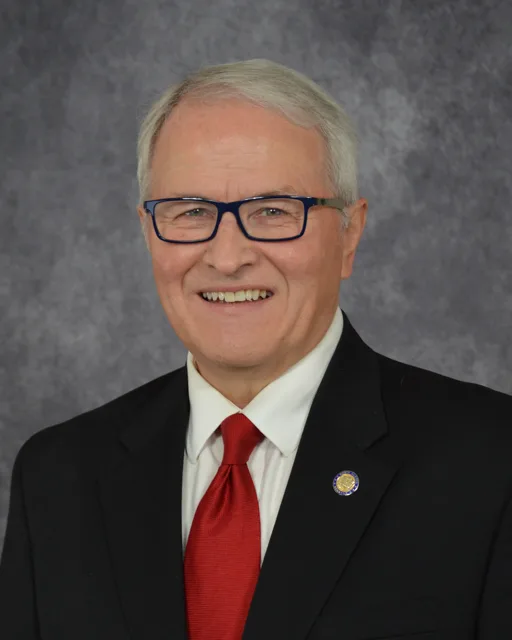

BISMARCK – A bill to help offset tuition costs for students enrolling in private K-12 schools passed the North Dakota State Senate Tuesday.
House Bill 1532 would provide funds to qualified private schools for the purpose of offsetting the cost for parents, no more than 30% of the per student rate. The Senate amended the bill so families under 500% of the federal poverty level would be eligible for the tuition funds. The bill was also amended so that the state auditor shall audit the funds. The bill would take effect July 1, 2024, and has a sunset date of June 30, 2025.
Sen. Randy Burckhard, R-Dis. 5, Minot, said North Dakota has 115,000 public school students and 7,500 private school students.
“If we were to say we were trying to raise taxpayers through the school system, we would say in a sense we are raising 115,000 potential taxpayers at taxpayers’ expense, and 7,500 taxpayers at almost no taxpayer’s expense,” said Burckhard. “I don’t think the public schools could handle it if we had to close the private schools and 7,500 students came their way. Also, I understand that 94% of the school funding goes to the 20 largest school districts, and we have 180 school districts.”
“If this bill becomes law, it will be the first for the state of North Dakota, the first time we have financed private schools with state dollars,” said Sen. David Rust, R-Dis. 2, Tioga. “Never before has that been done. Our state constitution mandates that the legislative assembly shall establish a system of public schools.”
Rust said it is good policy to have public dollars go to public entities.
“If this is being done in the name of school choice, it’s really a hollow argument,” said Rust. “Private schools do not exist in over two thirds of our counties. It’s really an issue of rural versus city. There may be choice for those in a large city, but there really is no choice for those in a rural area.”
Sen. Tim Mathern, D-Dis. 11, Fargo, said the job of the legislators is to make sure everyone has food, shelter, education, healthcare, and a decent paying job.
“This bill comes at a point where we haven’t addressed all of those issues yet,” said Mathern. “This bill now says we will help up to 500% of poverty, but when we look at the evolution of what we do in public policy, we still only help poor children up to 130% of poverty. Families who are in a situation of having no income, we help only to 38% of poverty, and now we’re talking 500%.”
“There is no such thing as state dollars,” said Sen. Bob Paulson, R-Dis. 3, Minot. “If a parent pays taxes and sends their child to public school, a per pupil payment will follow that child to that school. If they send that child to private school, they pay twice, and I think it’s completely appropriate for the tax dollars that they pay to follow their child to a private school.”
The bill passed 27 to 19 and if both chambers agree on the amendments it will be sent to the governor’s office for consideration.